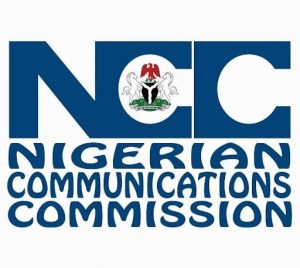Joy Agwunobi
The Nigerian telecommunications industry has solidified its position as a vital pillar of the country’s economy, with its contribution to the Gross Domestic Product (GDP) consistently increasing since the sector’s liberalisation in 2001.
The transformation has been driven largely by the Nigerian Communications Commission (NCC), whose strategic reforms have enabled the sector to flourish as a catalyst for both economic and social advancement.
From contributing just 7.6 per cent to Nigeria’s GDP in 2014, the telecom sector’s share surged to 16.36 per cent in the second quarter of 2024, according to data from the National Bureau of Statistics (NBS). Similarly, the broader ICT sector, which encompasses telecommunications, information services, publishing, media production, and broadcasting, accounted for 19.78 per cent of real GDP during the same period.
The telecommunications segment, led by major operators such as MTN, Globacom, Airtel, 9mobile, and numerous Internet Service Providers (ISPs), stands out as a key economic driver. With its 16.36 per cent GDP contribution in Q2 2024, the sector ranked as the third-largest contributor to Nigeria’s economy.
This sustained growth can be attributed to factors such as the rising adoption of data services, the proliferation of mobile money platforms, and ongoing policy reforms. Competitive innovation by key players, alongside the expansion of service offerings by ISPs, has further propelled the industry forward.
The NCC’s strategic initiatives have played a crucial role in fostering a robust and competitive telecommunications market. Since the industry’s liberalisation, the commission has implemented measures such as transparent licensing, the introduction of Mobile Number Portability (MNP), and the establishment of consumer-friendly policies. These steps have empowered subscribers and compelled operators to prioritise service quality.
Additional initiatives include the designation of telecom infrastructure as Critical National Information Infrastructure, efforts to simplify tariffs, and the implementation of an Application-to-Person (A2P) framework. These policies have laid the groundwork for a sustainable and inclusive telecommunications ecosystem.
Through its National Broadband Plan (NBP), the NCC has significantly expanded internet access to underserved areas, bridging the digital divide and unlocking economic opportunities in rural communities. These initiatives have not only connected millions of Nigerians but also stimulated local economies and enhanced livelihoods.
The telecommunications sector has shown a steady rise in its GDP contributions under the Nigerian Communications Commission’s (NCC) guidance. Data from the Commission reveals the following GDP contributions over the years: 7.6 per cent in 2014, 8.5 per cent in 2015, 10.30 per cent in 2019, 12.61 per cent in 2021, 14.38 per cent in 2023, and 16.19 per cent as of the second quarter of 2024.
This rapid expansion highlights the sector’s growing role as a driver of economic diversification, with increasing telecom subscriptions, improved service delivery, and rising government revenue from the industry as key factors.
The telecom sector’s impact extends beyond GDP contributions. Nigeria, which accounts for over 82 per cent of Africa’s telecom subscribers and 29 per cent of the continent’s internet users, is the largest ICT market in Africa.
Despite these successes, the industry still faces challenges, including infrastructure gaps, cybersecurity concerns, and affordability issues for end-users. However, the NCC’s transparent governance and collaborative policy framework provide a strong foundation for effectively addressing these challenges.









